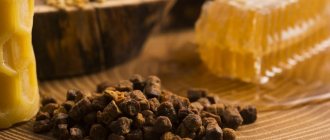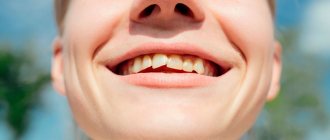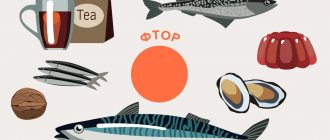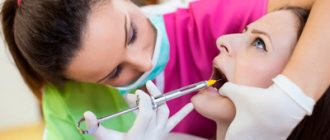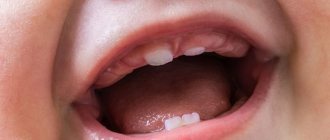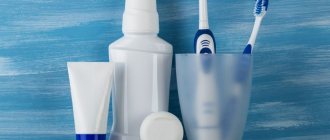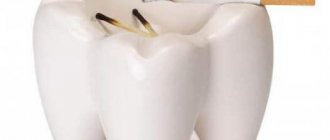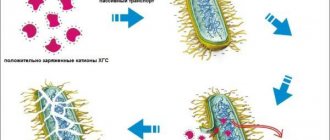Our food is a supplier of nutrients that are used for cell growth and development. If there is a lack of any vitamins and minerals, then the normal state of the body begins to suffer. Teeth are no exception. With an incorrect and unbalanced diet, they can begin to break down. On the one hand, this is due to the weakening of protective barriers, and on the other, to direct damage to the structure. How to eat right to maintain and increase the health of the dental system?
Useful products containing micro- and macroelements
Thanks to a well-formulated diet, teeth receive from food the elements necessary for aesthetics and health. To try to balance your diet yourself, it is important to understand which elements are most suitable for maintaining the basic functions of a person's teeth.
It is not at all necessary to eat only high-quality food purchased in expensive stores. It is enough to properly balance the diet so that the dental tissues receive everything they need.
The daily diet requires the presence of necessary vitamins, micro- and macroelements, without which dental health will be undermined. Experts advise following the daily norm, which will allow you to keep your teeth healthy and seek help from dentists less often.
Calcium
An element that everyone knows about. It is considered the main component of dental tissue. Lack of it in the diet leads to rapid tooth decay. The absence or insufficient amount of calcium in food leads to the destruction of enamel, a decrease in the resistance of teeth to various influences, and leads to the formation of caries and gum pathologies.
To get the necessary element, it is recommended to consume the following products:
- legumes (beans, beans);
- eggs;
- hard cheeses;
- almond;
- sesame;
- raisin;
- black bread;
- dairy products (cottage cheese, milk, cheese curd);
- White cabbage.
For adults, the daily norm is 800 g per day. Children and pregnant women need larger dosages. Their daily norm exceeds 1200–1800 g of calcium.
Phosphorus
This microelement is a connecting link with which it is possible to correctly distribute calcium particles obtained from food. Strengthens enamel and hard tooth tissues. Natural phosphorus is found in large quantities in potatoes, legumes, cheese, poultry, beef, fish, buckwheat, rice and eggs.
The daily intake of phosphorus for an adult is 1500–1800 g.
Fluorine
Foods that are good for teeth should include sea fish, pork, buckwheat, walnuts and poultry. They contain a large amount of natural fluoride, which protects teeth from negative external influences.
Lack of fluoride leads to the formation of caries and periodontal disease.
Every day a person should receive at least 7–10 g of fluoride from healthy foods. If this is not ensured, pathogenic microorganisms that enter with food, air and drink destroy our teeth.
Iron
An important element in the body's hematopoietic system is iron. It is obtained from peas, mushrooms, spinach, apples, walnuts, beef liver or seaweed. It ensures normal blood supply to the gums and nearby tissues around the tooth. A lack of iron quickly leads to gum damage - periodontal disease.
The daily dose of the element ranges from 10 to 18 g. In the absence of the element entering the body, pathologies develop in a short time and quickly affect the gums.
| Microelement | Products containing |
| Calcium | Milk, cottage cheese, eggshells, beans, beans, sesame seeds, almonds, white cabbage, black bread. |
| Phosphorus | Potatoes, legumes, cheese, poultry, eggs, beef, fish, buckwheat, rice. |
| Fluorine | Pork, walnuts, poultry, sea fish. |
| Iron | Peas, egg yolk, spinach, apples, walnuts, beef liver, mushrooms, seaweed. |
Knowing which foods contain useful microelements, you can create a competent diet to get everything you need for healthy teeth.
The Importance of Nuts and Seeds for Oral Health
Nut kernels and seeds of various plants contain a high concentration of substances that are beneficial for healthy teeth and gums. That is why it is extremely important to add these products to the daily diet of both adults and children. But, it should be remembered that each type of nuts and seeds has its own unique composition and, accordingly, has a certain positive effect. For example:
- pine nuts – promote the development of dental bone tissue, contain a lot of magnesium;
- sesame – helps remove plaque, saturates tooth tissue with calcium, thereby maintaining the strength of the enamel;
- peanuts, pumpkin seeds - rich in zinc, etc.
In order for the body to receive the maximum list of necessary substances, it is advisable to alternate pine and walnuts, cashews, Brazil nuts, hazelnuts, sunflower seeds, sesame seeds, pumpkin seeds, flax seeds and others in the diet. Seeds and nuts must be fresh, not roasted. Also, you should remember that cracking nuts and cracking seeds with your teeth is extremely dangerous. It is better to purchase already cleaned kernels, or use appropriate devices to clean them.
Top 8 healthy foods for teeth
A properly selected diet is the key to excellent health. This also applies to teeth. Products for teeth are a fairly extensive list. They contain important components that are involved in the formation of teeth and their strength, despite external influences.
There are a number of foods that are extremely harmful to teeth. Not everyone knows about their destructive effects.
From the point of view of doctors, healthy foods are a list of foods that:
- Strengthens the maxillofacial bones.
- It has a disinfecting effect and inhibits microflora inside the oral cavity.
- It has a massage effect on the gums and improves blood flow in them.
- Prevents the formation of tartar, removing even small plaque.
If the selected product meets one or more criteria, it is considered beneficial for the oral cavity.
You don’t have to worry about dental health if a person’s food is rich in microelements and vitamins. They ensure normal blood supply and protect the enamel from external influences of harmful substances and pathogenic microorganisms.
To avoid caries and diseases of the jaw system, it is important to regularly eat the following foods:
- Buckwheat and millet. They are responsible for the calcium content and its easy absorption in the body.
- Nuts and seaweed. They contain a large amount of iron, which helps absorb calcium and distribute it in sufficient quantities throughout the body.
- Wheat bran and pumpkin seeds. They contain a large amount of vitamins and microelements and help strengthen local immunity.
- Vegetables. Fresh vegetables and fruits are full of useful components, which must be supplied to the body in sufficient quantities.
- Dairy products. They are a carrier of calcium, without which dental health is impossible.
- Sea fish. A storehouse of vitamins and microelements, without which it is not possible to keep teeth healthy.
- Poultry and pork. They contain healthy fats and vitamins and strengthen teeth.
- Legumes. You can’t refuse to eat beans, beans or peas; they are rich in multivitamins that strengthen tooth enamel.
Products for strengthening teeth are varied and useful. Creating a delicious and satisfying menu will not be a problem.
Top 8 healthy foods for gums
Bleeding, weak and pathologically altered gums will not be able to support healthy teeth. That is why, first of all, you should select useful substances for healthy gums, and then strengthen your teeth.
In numerous illustrations showing healthy foods for teeth in pictures , you can see what foods should be included in the diet to maintain healthy gums:
- Pumpkin, carrots, and apples, due to their structure and chemical composition, ideally keep gums in order.
- Dairy products strengthen the circulatory system.
- Leafy vegetables contain a large amount of vitamins.
- Sea fish is full of multivitamins and healthy fats.
- Garden and forest berries are a real chest of vitamins.
Eating these foods daily will lead to healthy teeth. They are oversaturated with vitamin complexes and other useful components, adjust metabolic processes in tissues and clean teeth from plaque. As a result, the gums become strong and the teeth become healthy.
Top 8 harmful foods
Lists of healthy food ingredients have been studied for a long time and represent a wide range. But there are also components harmful to teeth that quickly destroy enamel and contribute to the loss of healthy teeth due to weak gums.
These products primarily include:
- Sugar and sweets, except honey. They disrupt the acid-base balance in the mouth, contribute to pathological processes and quickly destroy enamel.
- Caffeine. The beneficial components are washed out and the body becomes dehydrated.
- Roasted seeds are not beneficial when brushing your teeth. They mechanically damage the enamel.
- Pieces of dried fruit , if you do not brush your teeth immediately after eating, get stuck in the space between the teeth and disrupt the acidity.
- Sugary drinks provoke inflammatory processes.
- Temperature changes and eating hot and cold food at the same time lead to rapid deterioration of teeth.
Food that is too hard and too soft will not be beneficial. They help reduce the strength of enamel and gums. This greatly impacts your overall oral health.
Clinical researches
Multiple clinical studies have proven the effectiveness of Asept products. For example, as part of the tests, it was found that the two-component mouth rinse ASEPTA ACTIVE more effectively combats the causes of inflammation and bleeding compared to single-component rinses - it reduces inflammation by 41% and reduces bleeding gums by 43%.
Clinical studies have also proven that regular use of professional toothpaste ASEPTA REMINERALIZATION improved the condition of the enamel by 64% and reduced tooth sensitivity by 66% after just 4 weeks.
Clinical studies have proven that regular use of preventive toothpaste ASEPTA SENSITIVE for a month can reduce bleeding gums by 62%, reduce the sensitivity of teeth and gums by 48% and reduce inflammation by 66%.
Sources:
- Report on determining/confirming the preventive properties of toothpaste “ASEPTA PLUS” GENTLE WHITENING” Author: doctor-researcher A.A. Leontyev, head Department of Preventive Dentistry, Doctor of Medical Sciences, Professor S.B. Ulitovsky First St. Petersburg State Medical University named after. acad. I.P. Pavlova, Department of Preventive Dentistry
- Clinical and laboratory assessment of the influence of domestic therapeutic and prophylactic toothpaste based on plant extracts on the condition of the oral cavity in patients with simple marginal gingivitis. Doctor of Medical Sciences, Professor Elovikova T.M.1, Candidate of Chemical Sciences, Associate Professor Ermishina E.Yu. 2, Doctor of Technical Sciences Associate Professor Belokonova N.A. 2 Department of Therapeutic Dentistry USMU1, Department of General Chemistry USMU2
- Report on the determination/confirmation of the preventive properties of personal oral hygiene products “ASEPTA PLUS” Remineralization doctor-researcher A.A. Leontyev, head Department of Preventive Dentistry, Doctor of Medical Sciences, Professor S.B. Ulitovsky First St. Petersburg State Medical University named after. acad. I.P. Pavlova, Department of Preventive Dentistry
- Clinical studies of antisensitive toothpaste “Asepta Sensitive” (A.A. Leontyev, O.V. Kalinina, S.B. Ulitovsky) A.A. LEONTIEV, dentist O.V. KALININA, dentist S.B. ULITOVSKY, Doctor of Medical Sciences, Prof. Department of Therapeutic Dentistry, St. Petersburg State Medical University named after. acad. I.P. Pavlova
- The role of anti-inflammatory rinse in the treatment of periodontal diseases (L.Yu. Orekhova, A.A. Leontyev, S.B. Ulitovsky) L.Yu. OREKHOVA, Doctor of Medical Sciences, Prof., Head of Department; A.A. LEONTIEV, dentist; S.B. ULITOVSKY, Doctor of Medical Sciences, Prof. Department of Therapeutic Dentistry of St. Petersburg State Medical University named after. acad. I. P. Pavlova
- Report on determining/confirming the preventive properties of toothpaste “ASEPTA PLUS” COFFEE and TOBACCO Author: doctor-researcher A.A. Leontyev, head Department of Preventive Dentistry, Doctor of Medical Sciences, Professor S.B. Ulitovsky. First St. Petersburg State Medical University named after. acad. I.P. Pavlova, Department of Preventive Dentistry
- Report on determining/confirming the preventive properties of commercially produced personal oral hygiene products: Asepta toothpaste used in combination with Asepta mouthwash and Asepta gum balm Head. Department of PFS Doctor of Medical Sciences Professor S.B. Ulitovsky St. Petersburg State Medical University named after Academician I.P. Pavlova. Faculty of Dentistry. Department of Preventive Dentistry.
Adviсe
Experts note that the effects of even the most harmful substances and products can be neutralized. It is enough just to follow the general recommendations for dental care. For example, carry out hygienic brushing or rinsing after every meal, brush your teeth twice a day according to the rules outlined by dentists, and do not forget about visiting a professional office, even if nothing hurts.
A well-planned diet and timely prevention of oral problems will help keep your teeth healthy and beautiful. As for products for children, the list is practically unchanged. It is important to observe the quantitative composition and take vitamins if they are lacking in the food the child receives. Preventive examinations are also necessary every six months to prevent problems in time.
Other caries prevention measures
A healthy and balanced diet is of great importance in preventing the development of dental caries. However, you should not expect that giving up some foods and eating others can completely get rid of dental caries. An integrated approach is important in the fight against cariogenic bacteria and the prevention of caries. After adjusting your diet, also pay attention to the following points:
- Brush your teeth regularly with a properly selected brush and paste, use floss, dental floss or irrigators to remove food debris from hard-to-reach areas and interdental spaces.
- Visit your dentist twice a year for preventative purposes, even if you have no symptoms of caries and no signs of oral discomfort.
- When caries appears, treat it at an early stage, without delaying the process to a deep stage or pulpitis.
- Regularly visit a hygienist for professional teeth cleaning - special equipment will help remove complex plaque from the surface of the teeth, which is difficult to remove with manual brushing.
Compliance with these simple preventive measures plus nutritional correction towards a healthy and balanced diet will allow you to maintain healthy teeth for a long time and prevent the development of caries.
